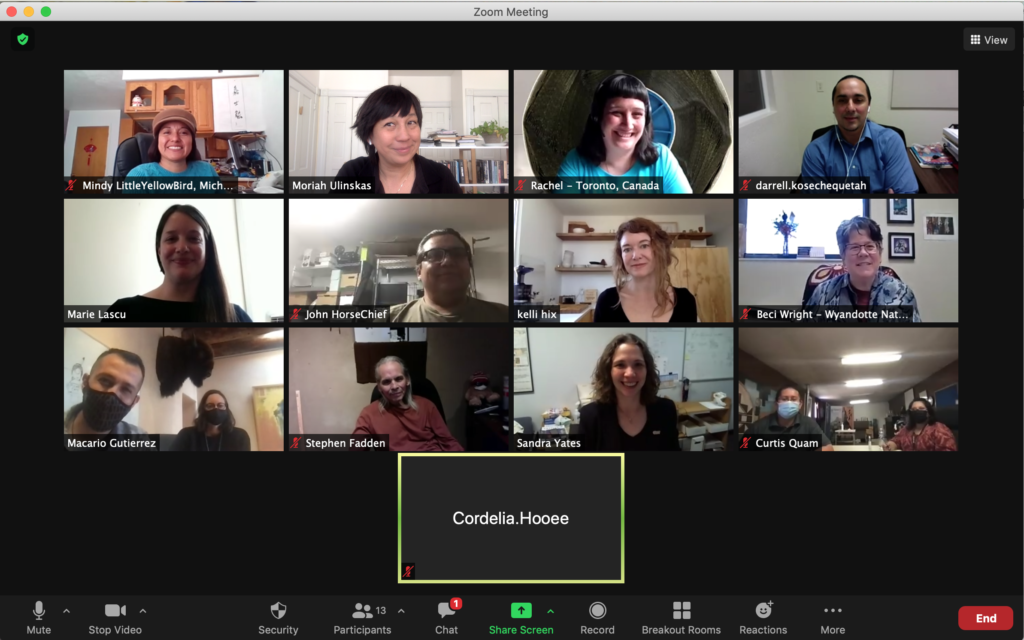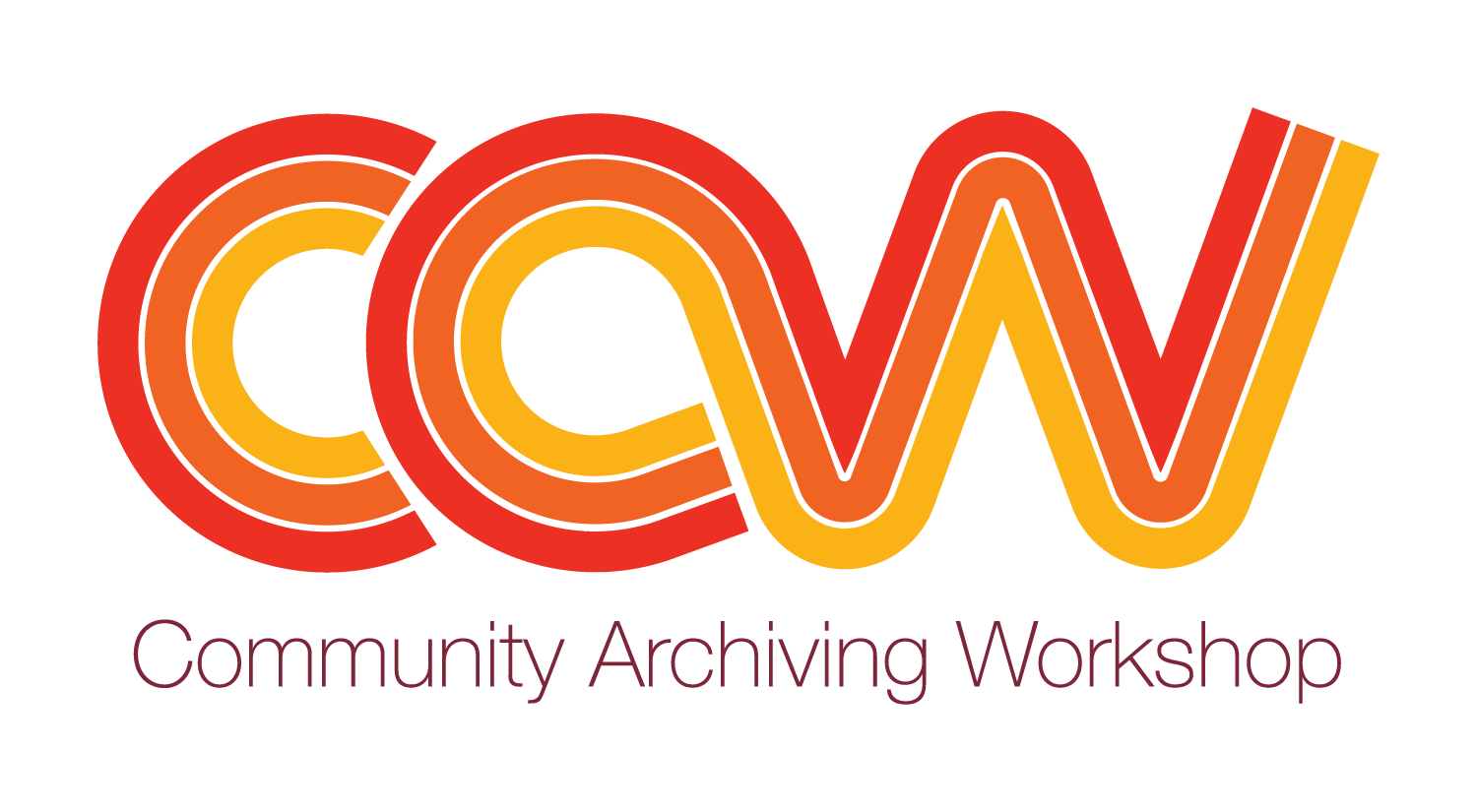
Zuni Tribal Archives/ A:shiwi A:wan Museum and Heritage Center
Curtis Quam (Zuni, NM) is a Museum Technician/ Cultural Educator at the A:shiwi A:wan Museum and Heritage Center. His role in the museum has allowed Curtis to work with community members building ways through a variety of different media to educate youth and interested people about A:shiwi beliefs and history. Established by a small group of Zuni tribal members in 1992, the A:shiwi A:wan Museum and Heritage Center is a Pueblo of Zuni, Tribal Program dedicated to serving the Zuni community with programs and exhibitions that help us reflect on our past and are relevant to our current and future interests. As a tribal museum and heritage center for the Zuni people and by the Zuni people, we work to provide learning experiences that emphasize A:shiwi ways of knowing, as well as exploring modern concepts of knowledge and the transfer of knowledge. We define our institution as an ecomuseum: in harmony with Zuni’s environmental values and dedicated to honoring, cultivating, and nurturing dynamic Zuni culture.
The Wyandotte Nation Cultural Center and Museum first opened in 2016 after several decades of work by a small dedicated group of tribal citizens. The Nation’s heritage department has recently expanded and is embracing an ambitious 5 year plan to bring cultural opportunities to all Wyandotte citizens in NE Oklahoma and across the continent. The museum has recently been accepted to the Museum Assessment Program and the Cultural Center is actively engaged in a multi-institutional effort to digitize historical documents relevant to the Tribe.
Beci Wright is a citizen of the Wyandotte Nation. Last year she joined the Cultural Center staff as the tribe’s Cultural Researcher, a new position created to promote and support the continuance of Wyandot(te) history, language, and lifeways. This position allows her to utilize her background in libraries (MLIS from the University of Washington) and education (museum educator, middle school teacher) in addition to encouraging her life-long dream of learning her language. One task she is especially excited about is restructuring and growing the Tribe’s research library and archive. This is also critical to the Nation’s ongoing language revitalization effort as most resources are historical.
Poeh Cultural Center Archives, Pueblo of Pojoaque: The Pueblo of Pojoaque is one the smallest of the (six) northern New MexicoTewa speaking tribes, both in terms of population and land base. We are a Tribe of approximately 550 enrolled members and are situated on 13,000 acres just north of Santa Fe. Pojoaque people have occupied this parcel dating back to 700 A.D.. We have experienced times of abandonment of our lands over time, due to drought, disease and encroachment. The last abandonment was in the early 1900’s due to drought and lack of employment. Many tribal members left to neighboring pueblos for more fertile farmland and some left to Colorado seeking employment. Upon the call of the Federal Government in the 1930’s, Pojoaque members were encouraged to return to re-claim their lands. Much of the culture had been lost during these periods. However, the returning members made it priority to re-learn the Tewa ceremonial cycle, which includes bringing back traditional songs and dance and most importantly the language. In 1988 the Poeh Cultural Center was built and has been essential in fulfilling our ancestors’ vision. The Poeh is not just a repository, it is a gathering place for Tewa teachings. The Poeh offers traditional classes in pottery making, bead work, sculpture, weaving, embroidery and language. It has been and continues to be a vibrant and vital part of the community. It is the only tribally owned and operated museum north of Santa Fe.
Macario Gutierrez (Povi-ugeh), Archives Coordinator, Pueblo of Pojoaque Poeh Cultural Center, New Mexico is an enrolled member of the Pueblo of Pojoaque, Po’ Suwae-geh (meaning, water drinking place). Macario has worked for the Pueblo for twenty years, fifteen in law enforcement and the last few years working for the Museum Archives. While he has no formal experience working with Audio/Video preservation, he looks forward to gaining some knowledge and experience in preserving family and community history.
Chiara Giovando is an artist and curator based in Northern New Mexico. She is Senior Curator for The Hidden Seer System, an arts, architecture and ecology platform, and is currently contracted to help form the Poeh Cultural Center Archives at Pojoaque Pueblo. She holds a master’s degree from California Institute of the Arts and is enrolled in the Institute of American Indian Arts Museum Studies Degree Program. She has worked as an independent curator for many years and has mounted projects with a range of institutions – from museums to artist-run spaces – including; the Whitney Museum, Tate Modern, The Getty, Moca L.A., Disjecta Contemporary Art Center and Human Resources L.A.
Stephen Fadden is the Programming Director at the Poeh Cultural Center, where he works with Collections, Archives, community outreach and exhibitions. He holds an AFA in Museum Studies from the Institute of American Indian Arts, as well as BA and MA degrees in Communication from Cornell University.
Comanche Nation Language Department: Our mission is to revitalize and reclaim the Comanche Language and to help our people speak and think in Comanche in our own unique ways. The Comanche Nation’s main headquarters is located 9 miles north of Lawton, Oklahoma. The Comanche tribe currently has approximately 17,000 enrolled tribal members with around 7,000 residing in the tribal jurisdictional area around the Lawton, Ft Sill, and surrounding counties.
Darrell Kosechequetah is the Information and Communication Specialist for the Comanche Nation Language Department. He is a Comanche citizen from Lawton, Oklahoma. He has a Bachelor of Business Marketing degree with several years of graphic design experience. Within the department, he is tasked with a variety of responsibilities that include recording elders, digitizing old recordings, updating and creating content for the website, dictionary, app, and social media.
Wahzhazhe Cultural Center: To ensure the survival of the Wahzhazhe nation of people, we will share, preserve, and celebrate the values, teachings and tribal ways that our elders entrusted to the present and future generation. Our Strength will come from the commitment of our Wahzhazhe people and the knowledge that the Wahzhazhe nation is blessed by Wa-Kon-Da.
John Levi HorseChief is an enrolled member of the Osage Nation and the audio/video technician of the Wahzhazhe Cultural Center. The Wahzhazhe Cultural Center is located in Pawhuska, OK the capital of the Osage Nation. The Wahzhazhe Cultural Center strives to preserve and share our culture with our tribal and community members.
